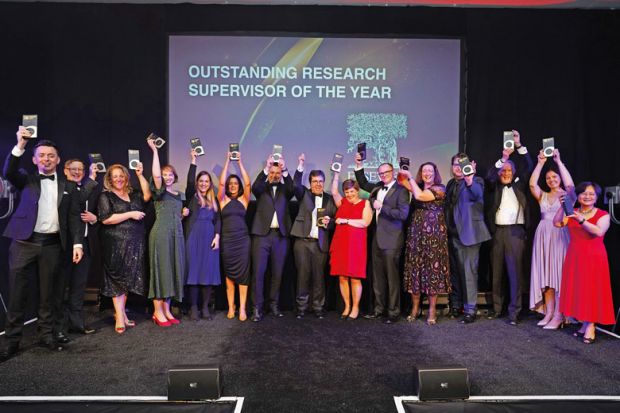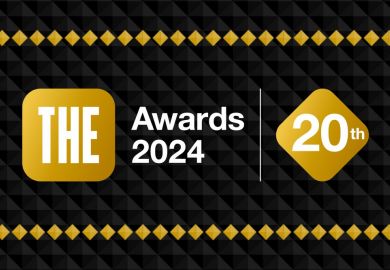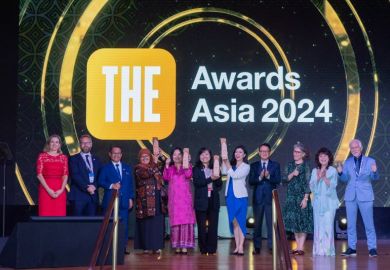University of the Year
A “new kind” of higher education institution has emerged, and Northumbria University’s crowning as University of the Year at the Times Higher Education Awards is evidence of that, according to its deputy vice-chancellor.
Northumbria’s victory recognised its emergence as a research-intensive modern university, an ambition that was first set out in 2008.
“The strategy has been an overriding emphasis on quality, especially around research, and underpinning everything that we do with research,” Tom Lawson, Northumbria’s deputy vice-chancellor, told THE.
He said the organisation’s results in the 2021 Research Excellence Framework showed that the “bold” strategy and a “tremendous collective effort” had paid off.
In the assessment, Northumbria recorded the biggest rise in research power – a measure that reflects academic strength across the campus – of any UK university for the second REF in a row, moving up from 80th position on that measure in 2008 to 23rd now.
“It has taken some steadfastness and resolve to stick with it because ultimately it involved also transforming the confidence of the organisation as well, in the sense that we could do this and become a different kind of institution,” said Professor Lawson.
“We will always want to become more research-intensive, but with a clear sense that we are a different kind of organisation to Newcastle University across the road, other Russell Group universities or other research-intensive organisations.
“We’re not trying to be like them; we are trying to create a new kind of university.”
A research-based education was hugely beneficial for students because it allowed them to become involved in research projects and, ultimately, resulted in better outcomes, Professor Lawton argued.
Some of the staff who represented the university at the THE Awards ceremony were Northumbria graduates who are now embarking on their own research careers.
“It’s been hugely positive for us,” said Professor Lawson, reflecting on the win. “There’s a huge sense of collective achievement. We are delighted to have won because it’s such a vindication of everything we’ve done.”
The research-driven strategy is clearly a key reason why Northumbria won the title, but judges were also impressed that it had maintained its key role within Newcastle and the north-east.
The university draws 40 per cent of its undergraduates under the age of 21 from widening participation backgrounds and places as many graduates into highly skilled employment across the north-east as all the Russell Group institutions combined.
Professor Lawson said Northumbria wanted to keep a “really clear social mobility mission at its heart”.
“For Newcastle to have two research-intensive universities in the city has the potential to be even further transformative for the north-east,” he added.
Newcastle University was also shortlisted for the University of the Year title in 2022, the first time that two institutions from the same city had been in the running.
Northumbria encouraged other post-92 universities to follow a similar strategy.
“This began in 2008 and it’s come to fruition now. It does require steadfastness, huge focus and planning for the long term, but it’s certainly possible,” said Professor Lawson.
patrick.jack@timeshighereducation.com
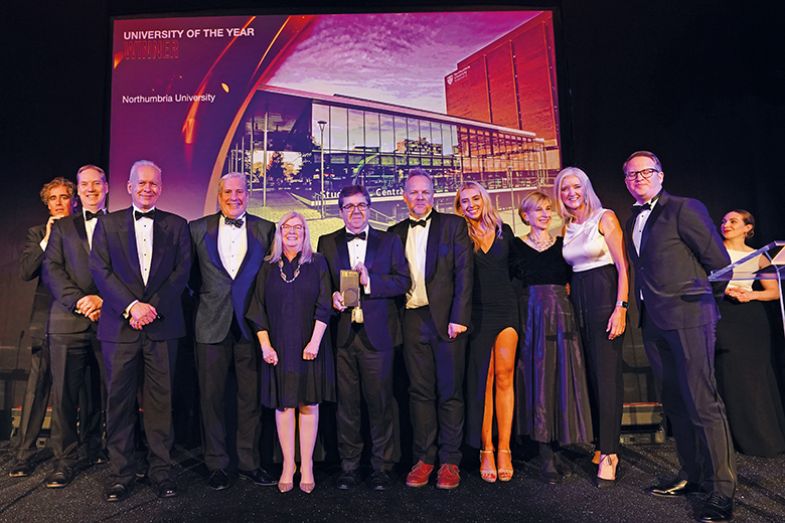
Outstanding Research Supervisor of the Year
With his doctoral students investigating coral reefs in French Polynesia, wasp behaviour in Panama and mongoose colonies in South Africa, staying in touch is understandably challenging for Andy Radford, professor of behavioural ecology at the University of Bristol.
However, ensuring that PhD candidates maintain frequent contact with their supervisor – despite different time zones and working patterns – can be the difference between a PhD project succeeding or failing, insisted Professor Radford.
“No matter how much you prepare, fieldwork almost never goes to plan. As soon as you get out in the wild and are dealing with wild animals, things can quickly unravel,” he explained.
In practice, finding time for these make-or-break calls to resolve PhD problems means that Professor Radford runs a “flexible schedule, which, in some ways, blurs the boundaries between working hours and private time”, he admitted. “Some people say I never switch off, but I don’t mind taking a call at weird times of the day – such as 9pm after my children have gone to bed,” said Professor Radford.
He is also adamant – evangelical even – about the importance of maintaining a healthy balance between work and family life – something for which he was praised by both PhD students and colleagues in the award nomination. “I am not afraid of talking about my family at work and have made a point to mention to everyone – from senior university administrators to students – that I sometimes won’t make certain meetings because of personal commitments,” he explained.
Jack Grove
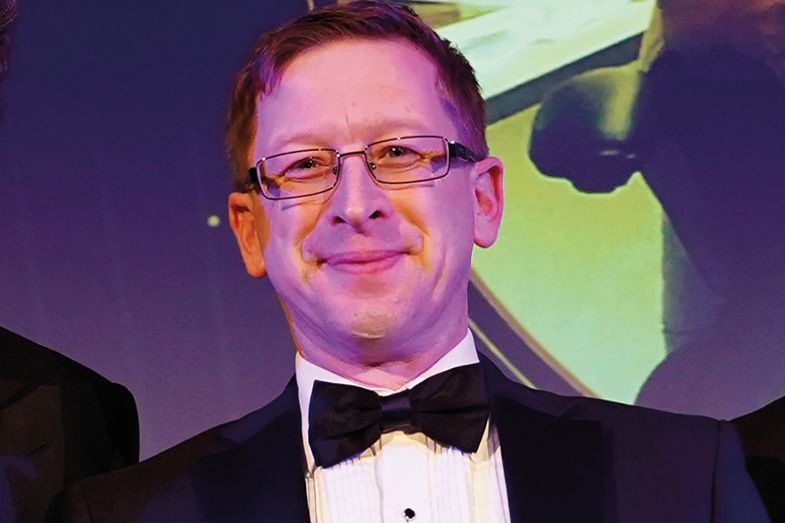
Knowledge Exchange/Transfer Initiative of the Year
In 2007, artist Loraine Leeson met The Geezers – a group of older men from East London’s Tredegar Community Centre, which provides activities for those who might otherwise be isolated.
At the time, Dr Leeson, who creates art for social change, was on a commission feeding into older people’s experiences of not being taken into account in the development of new technologies.
The Geezers asked her: “When older people can’t afford to heat their homes and there is a tidal river down the road, why are we not using it to power our community?”
Twelve years later, the question resulted in a prototype turbine for the Thames. The initiative, called the Active Energy Project, has also fed into three Middlesex University research projects and created floating water wheels to provide aeration for rivers at Three Mills heritage site in Bow and the Queen Elizabeth Olympic Park.
For The Geezers, taking part in the project, in their words, “made us feel positive about what we have to offer even though the ideas of people of our age are often overlooked”.
Having tasted success and realised that “we certainly have better ideas about what wind and water can do for the country than the government”, The Geezers don’t look like they’re going to stop any time soon.
Now they’re out to ask more questions: “Why is there so little investment in tidal power? Why are there still no turbines on the Thames Barrier?”
Pola Lem
Outstanding Marketing/Communications Team
It started with “one sleepless weekend” in the early weeks of the Covid-19 pandemic, when clinical staff from King’s College London and the science start-up ZOE stayed up to develop an app that would allow them to track the symptoms of the still-mysterious illness across populations in real time.
A fortnight later, the partnership’s communications teams turned to “guerrilla tactics” to recruit contributors, according to Ellie Griffiths, ZOE’s UK communications manager. That meant word of mouth – enlisting family and friends by passing news of the app around on WhatsApp and Facebook – as well as using conventional publicity such as press releases.
“We just immediately saw that the stats were going through the roof in terms of engagement with our posts, but also downloads of the app,” said Tanya Wood, senior communications business partner at King’s.
To date, more than 4.7 million contributors worldwide have logged more than 480 million daily health reports, making the app the largest Covid-19 study of its kind globally.
Thanks to all the sickly citizen scientists who submitted symptoms, the data collected via the app ran about a week ahead of the Office for National Statistics, Ms Wood said. A couple of months in, loss of taste and smell emerged from the data as a key symptom. The team press-released the resulting preprint paper, taking care to include the caveat that it was not yet peer reviewed.
“We just thought, actually, this could save lives,” said Ms Wood. And it ultimately led to anosmia being added to the UK government’s official list of coronavirus symptoms.
Ben Upton
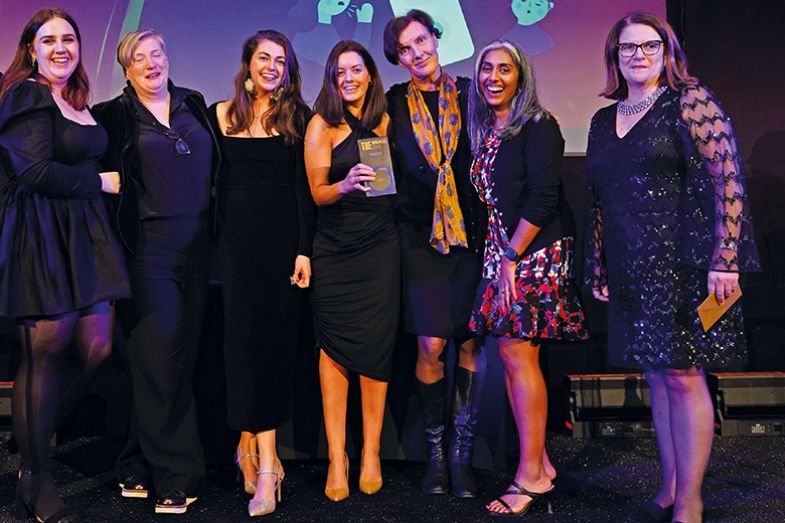
Outstanding Technician of the Year
In April 2020, on the second day of the first national lockdown, Hong Lin was injecting a llama called Fifi as part of an urgent project to produce nanobodies that could be used to treat Covid-19. Ms Lin is rightfully proud of her contribution to the work, which, it is hoped, will enter clinical trials for development into a nasal spray to treat coronavirus.
The potential impact underlines that Ms Lin is a technician par excellence, following a journey that stretches back 30 years to her time as a medical doctor in Chengdu, China. She followed her husband to Edinburgh for his PhD training, but the language barrier prevented her from continuing her medicine practice.
She worked instead at the University of Edinburgh’s pneumatic disease unit and later took up a position at the University of Reading, working on a Wellcome Trust project on dopamine receptors. She has been working as a technician there ever since.
Ms Lin’s nominating colleagues praised her positivity and expertise when contributing to research projects, and her patient work shepherding doctoral candidates through the frustrations of their first lab work. She also sits on the university’s technical services diversity and inclusion group.
Ms Lin is particularly proud of her work developing cannabinoid treatments for complex epilepsies, which are now fully available on the NHS.
“To make this contribution, [with] finally this drug being used for the treatment of severe childhood epilepsy, I feel very proud,” she said.
Ben Upton
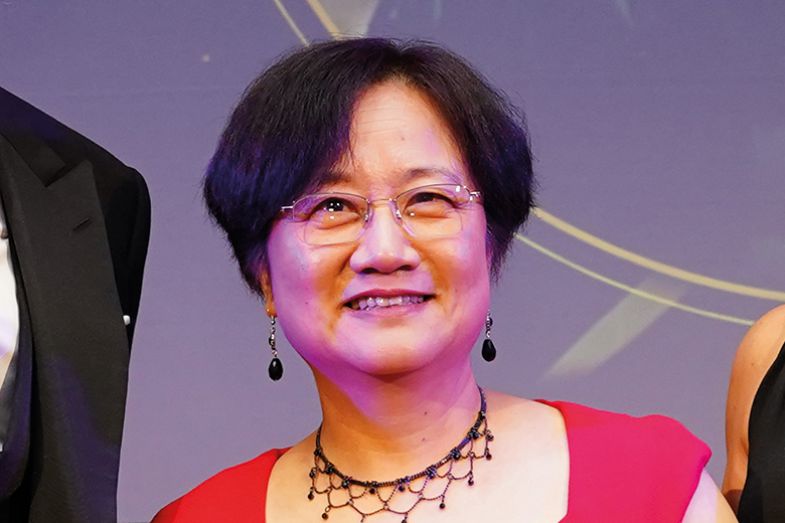
POSTSCRIPT:
Print headline: Honours for going above and beyond
Register to continue
Why register?
- Registration is free and only takes a moment
- Once registered, you can read 3 articles a month
- Sign up for our newsletter
Subscribe
Or subscribe for unlimited access to:
- Unlimited access to news, views, insights & reviews
- Digital editions
- Digital access to THE’s university and college rankings analysis
Already registered or a current subscriber? Login
